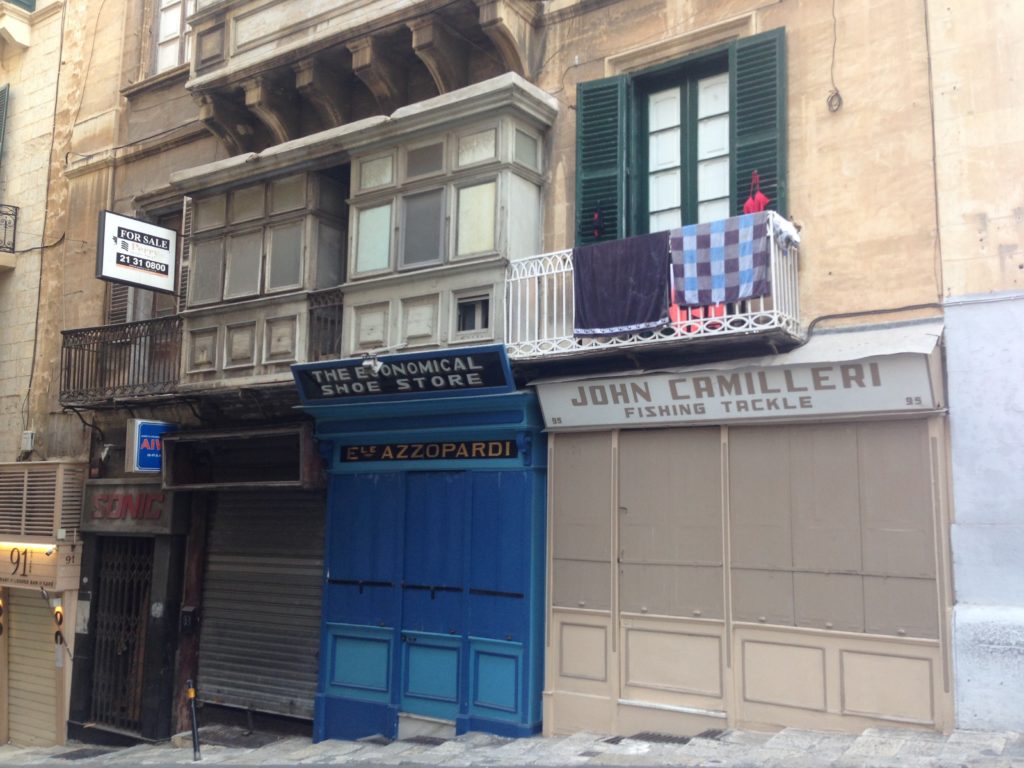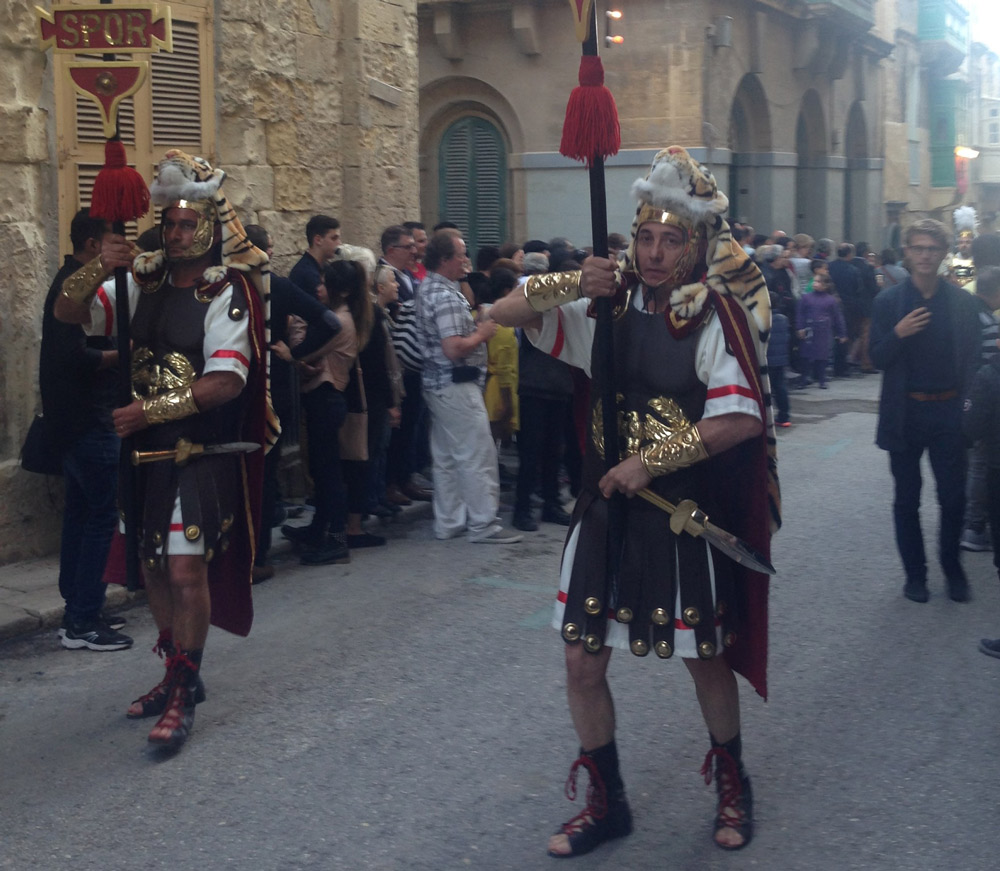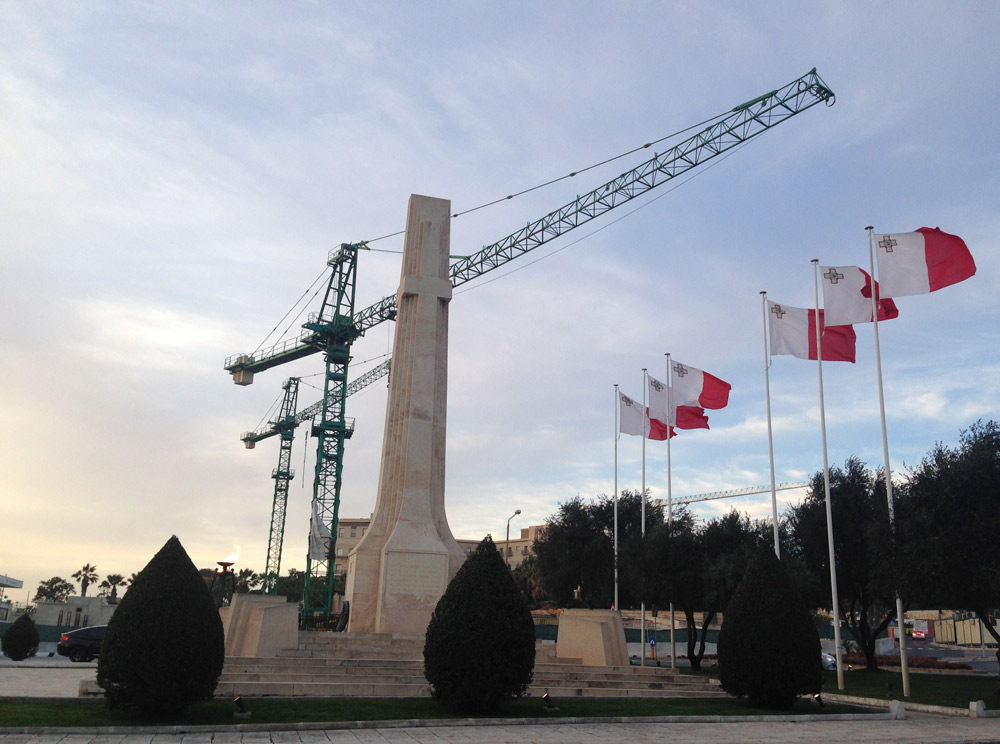Can we not, for once, decide that perhaps we have enough?
That perhaps we can actually afford to leave a portion of that block of flats available to those with a lower income who will contribute to the place feeling like home rather than 3 sets of tourists rolling in luggage every week? That perhaps it would be beneficial to all if we look around to make sure that we manage to keep the things that make the city a good place to live in? The little food shops, the ironmongers (possibly the only non-endangered species thanks to all the construction going on), the workshops with people making and repairing things often with their shutters open, the random bazaars, the tea and pastizzi shops, the old stationeries.
Don’t get me wrong, I don’t think we should press the stop button on time or change. That never works. But neither does this do-nothing approach that lets market forces decide which things die and which live. Yes, in 50 years time perhaps people will realise that a museum city is not really that interesting and the bubble will burst. Perhaps Valletta will just become another Venice, a sinking relic in the midst of throngs of day-trippers on the hunt for cheesy souvenirs. Perhaps we’re already practically there.
Or perhaps we can use the experience of countless other cities and do something about that which is inevitable unless we drastically change course. It’s not like we don’t have clear examples of what gentrification does to cities without even glancing at the many local studies conducted. Can we possibly not create something different for ourselves? Are we actually so incredibly unimaginative as to simply plod along known roads to mediocrity?
In a small island like this one, where it’s practically impossible to avoid eventually swimming in the sewage you have yourself thrown out, can we not actually work together to create something we actually want? Valletta is a city born out of a collective effort of some of the best local and foreign minds and purses of the time. A city planned out meticulously before it was built. Surely over 400 years later we at least owe the old girl some thought over what will make her once again truly alive rather than a polished shell for a rotting interior fabric.
Endnote:
And in case you’re wondering what you yourself, tiny person can do, there’s plenty.
If you own property, consider capping the rent to what you feel is enough, whatever that means for you not the estate agent. Consider renting to people who will live in the city and make it better.
If you’re renting, speak out about unacceptable prices for tiny dark rooms. Create a relationship with your landlord.
If you’re visiting, stop by one of the small shops or peer into the workshops. Wander beyond Republic Street.
Have conversations with tourists, locals, builders, garbage collectors, bar owners, developers, share a cup of coffee with a stranger. You never know what new realities you might learn about.
Read some of the development notices and decide whether they are helping create a more liveable city. Act on those thoughts by contacting the Planning Authority or even searching out the owner and having a good old conversation where you might agree to disagree.
If you’re an architect dare to give the feedback that’s on the tip of your tongue about how to make a better living space and why it’s not ok to turn every square metre into tourist accommodation. Dare to have standards for yourself.
If you live here, get some plants going, take the garbage out at the right time, speak to your neighbours and see if they are ok even if they seem grouchy.
Seek out the artists and support them, they make the place better for everyone.
If you’re in a position to influence even small things, use it well. Have that conversation, check that situation out, do your homework and stand up for what you feel is right instead of repeating the same old excuses everyone is tired of. You can actually do better.
We can all actually do a lot better.



